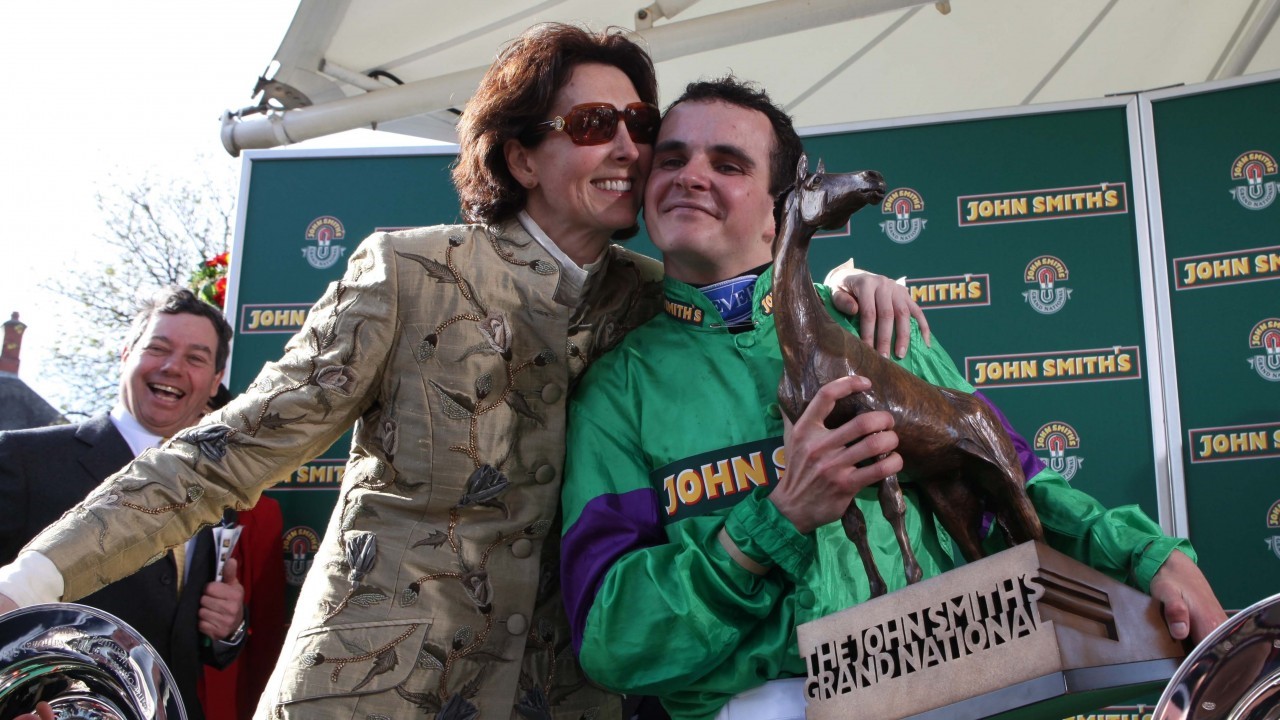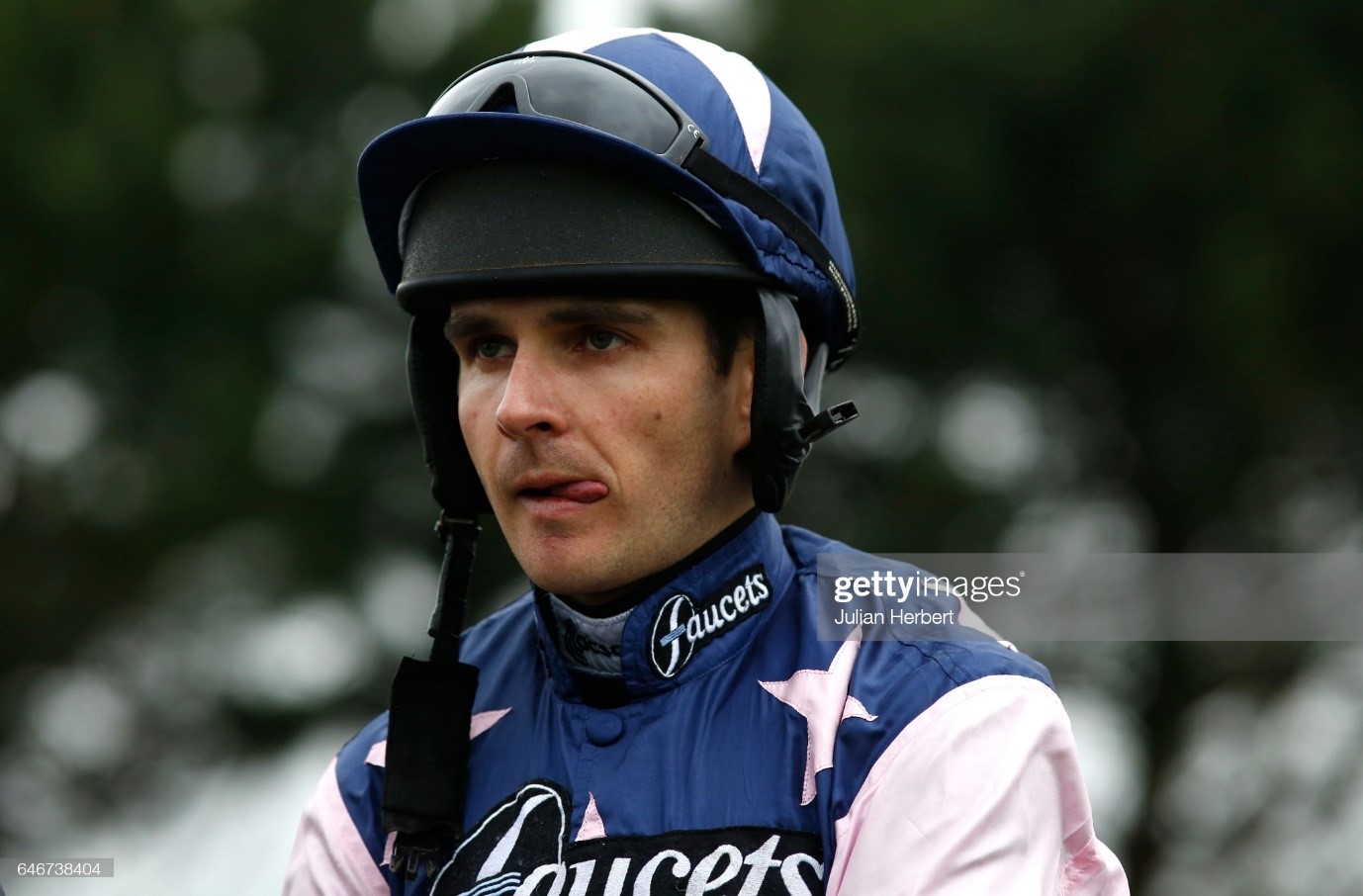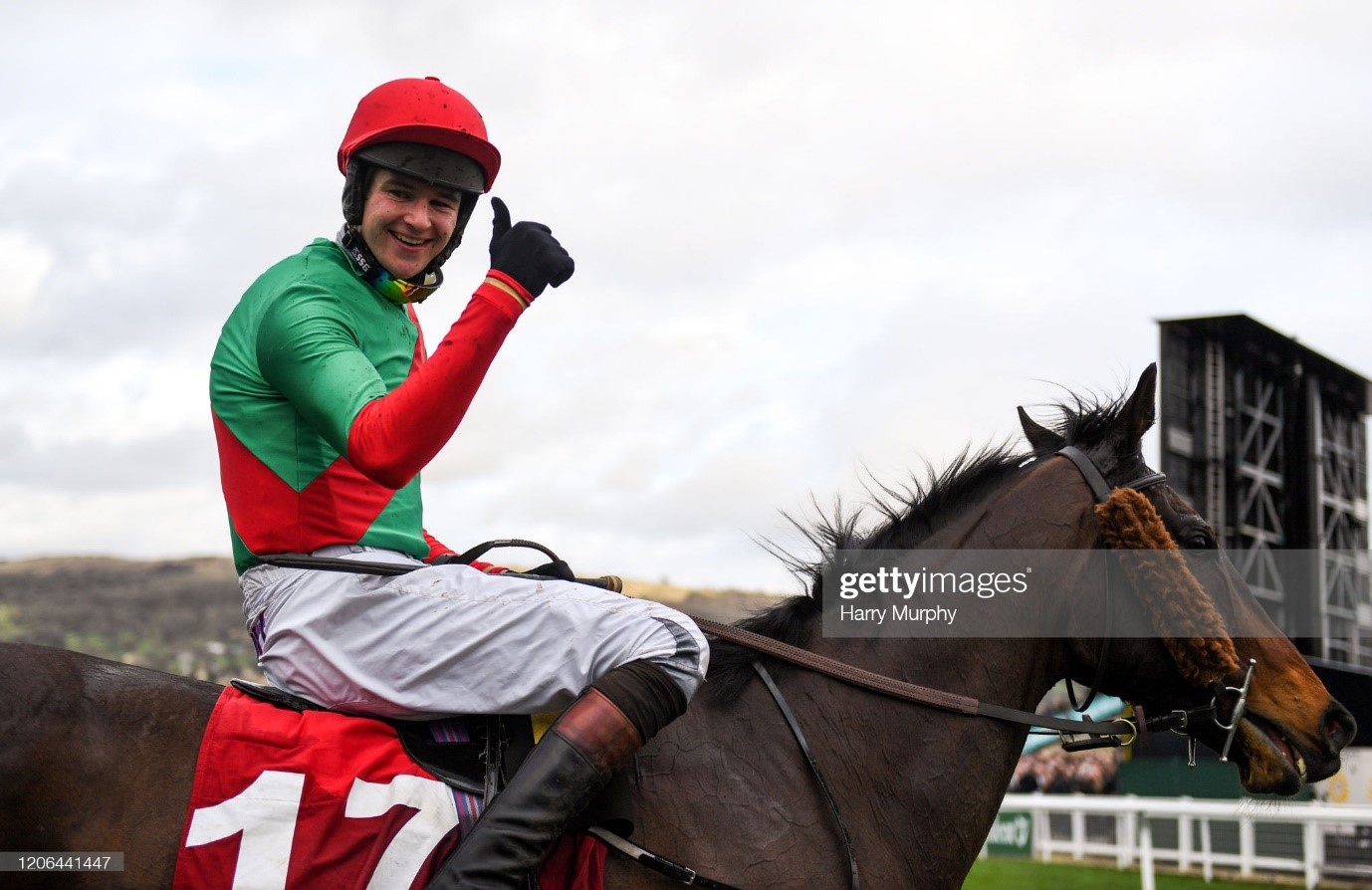Gone but never forgotten: A year on from the tragic deaths of James Banks and Liam Treadwell

It is difficult enough to lose one friend but having to bury two in the space of five months is something which cannot be put into words. Last year, jockeys Brendan Powell and Robbie Dunne buried two of their closest weighing room colleagues: James Banks and Liam Treadwell.
Dunne, a Scottish Grand National winning jockey and Powell, a Cheltenham Festival winner soldiered alongside, holidayed and roomed with their friends, ‘Treaders’ and ‘Banksy’. On February 3rd and June 23rd of last year respectively, both were lost…taken by their own hand.
Both Treadwell and Banks had struggled and persevered against their demons, but in the end it all became too much. In a sport not for the faint hearted, the 26-year-old Powell said:
“When your self-employed as a jockey, it’s hard to make a living. There’s not that much profit out of driving somewhere for one ride.
“It’s a lot of hard work and not that much reward for a lot of people.”

A life taken too soon
A popular and outgoing member of the weighing room, former jumps jockey James Banks rode 85 winners in a career that began on the flat as a teenage apprentice in 2000. He retired from the saddle on February 2nd, 2018, almost exactly two years before his life came to an end.
His funeral which took place in Marlborough saw a church filled to capacity with mourners who shared fond memories of a funny and gregarious character who put a smile on everyone’s face. A small cohort had known the other James. The side of James that hid his own insecurities and mental health issues while putting on a brave face.
As Dunne said: “In the end it was the lack of opportunities and getting screwed over by trainers…That’s why a lot of lads pack it in and get down about the job.”
Banks’ career best season included 24 winners in 2015/16. Despite being an extremely competent jockey, much of his time was spent travelling to racecourses around the country for a single ride a day.
“Taking nothing away from James but a lot of the horses he would have been riding were pretty average. He wasn’t going racing with four or five rides on a card. A lot of the time he wasn’t making money,” Powell remarked.
After his retirement from riding at Chepstow racecourse in February 2018, Banks initially worked for Lambourn-based flat trainer Clive Cox, who described James “as always good fun”. In a busy yard which houses over 100 horses, Powell had his reservations at the time about his friends almost immediate switch to the assistant training ranks.
“He went straight from the busy lifestyle of being a jockey into becoming assistant trainer to Clive Cox. He didn’t really give himself any down time after he retired and it was straight into a non-stop flat season over the summer.
“He did really enjoy it for a long time but he then fell half out of love with.”
At the same time, Banks was engaged in a relationship with a French girl that came to an end and he also suffered a psychotic episode according to his mother Beverley Reid. Dunne had noticed a distinct change in his friend’s demeanour and it wasn’t long until things came to a head,
“He lost the job at Cox’s because there were a few mornings he turned up late. James had been going to AA and had been off the drink for a good while but then he fell off the wagon and that’s why he lost the job.
“He’d been off the drink for four years when he was riding but he was sucked back in. When he lost the job at Cox’s then, he made himself quite recluse and quite hard to get in contact with.”
“It didn’t hit me until 24 hours later, I was in shock”
In an attempt to rebuild his life, Banks returned to the familiar surroundings of Emma-Jane Bishops yard in Naunton, whom he’d rode 17 winners for during his career. Having gone bankrupt and lost his home, she provided him with a cottage and the role of head-lad.
In his own mind though, Banks felt he had fallen too far and in a suicide letter dated October 12th, 2019 he outlined his personal struggles of ‘how he felt a failure and how he thought he had let his family down. He couldn’t live with himself anymore.’
Depression had taken hold of a man who was once the life of the weighing room and at 9.00 am on February 3rd, 2020, Bishop found him dead in his cottage. The illness that claimed Banks ensured a sense of despair remains, especially in the hearts and minds of those he left behind.
“When I heard he was working at Emma’s, it seemed like he was getting his life back on track. That’s why I was surprised when I heard what he’d done that morning. It didn’t hit me until 24 hours later, I was just in shock,” Powell said.
No matter what decisions Banks had made in his life, he deserved the support he never sought. Dunne put it plainly,
“I know it only too well from the drink. You need to want to help yourself.”
Banks may have planned what occurred on February 3rd, 2020, but no one is ever beyond saving and his, was an act of desperation. The desperation of a man much loved by friends and family.

“He was always doubting himself”
Liam Treadwell’s life was one of ups and downs. On April 9th, 2009 he was being led into the hallowed winner’s enclosure of Aintree racecourse having won the Grand National aboard 100/1 shot Mon Mome for trainer and friend Venetia Williams. Seven years later he lay unconscious on the turf of Bangor-on-Dee racecourse following a heavy fall which led to severe concussion symptoms.
Treadwell like Banks was a much-loved character of the weighing room and a real people pleaser. On that fateful day at Bangor though, Treadwell’s life changed forever.
“I was living with him when he had the fall at Bangor,” Dunne said.
“I remember his wife Emily going up to the hospital to see him and he was there for two or three days. Ever since then he was slightly different. It certainly did him no favours anyway.”
Dunne added,
“It took him a long time to pass the concussion test at Oaksey House. That was taking a lot of mental strain on Liam aswell trying to get his licence back.”
For the majority of jockeys, the first thing that comes to mind when injured, is when can I get back? Powell knows this only too well from his own experiences on the sidelines,
“When you’re not riding, someone is riding for your trainer, your owners, your horses. The chances are is it’s going to be hard to get back on them unless you’re riding for a loyal trainer or owner and there’s not many of those about.”
Venetia Williams is as loyal as they come, which Dunne can attest to after a career-best season last year with 44 winners. Being a people pleaser though, Treadwell was especially sensitive to criticism.
“He was quite a sensitive person and terrible at taking the social media abuse to heart,” Powell said.
“Down at the start, especially if he was on a fancied horse, he used to gag a little bit. It wasn’t anything to do with his bottle…he just wanted everything to go well and please everyone. When he did give a horse a bad ride and it got beat, he’d really take it to heart.”
Having ridden 285 career winners, Treadwell returned to the saddle six months after his concussion despite the concerns of his wife Emily, before retiring on 13 February 2018. Following his retirement, issues with depression and alcoholism began to surface as he assumed the role of assistant trainer at Williams yard before moving on to Ed De Giles establishment in Ledbury.
“That was torture for him there. He had to ride out 14/15 horses a day because there were only two or three girls and they weren’t able to manage some of the horses. He ended up doing an unbelievable amount of work and that facility is in the middle of nowhere aswell,” Dunne said.
“He became very recluse but he always put on a brave face so you never knew anything. He attempted suicide one night there and the police had to be called. After that incident, he came to live with me for a bit and that’s when Dr. Philip Pritchard came on the scene and got in touch with the IJF and that.”
Founded in 1964, the Injured Jockeys Fund was set up as a charitable organisation to provide appropriate support and improve the lives of injured jockeys and their families. Not everyone is a fan though of the third richest charity organisation in Britain.
“Liam needed help for the solicitor with his divorce from his wife Emily and they paid for all that. Not long after he got this bill having to pay them back which he wasn’t expecting. I know for certain that took a huge toll on him,” Dunne remarked.
In the space of 4 months I have lost 2 of my very close friends. It’s hard to talk about how you are feeling but it’s not good to keep it to yourself. R.I.P Treaders ❤ pic.twitter.com/VNVhYSDo1J
— Brendan Powell Jr (@brendanp1995) June 23, 2020
A Tragic loss
Following his divorce, Treadwell returned to race riding with trainer Alastair Ralph in March 2019. A move said to have been a positive one by Dunne who he lived with at the time before moving into a flat at Ralph’s yard in Shropshire. After a 2019-20 season where he rode 10 winners, racing was brought to sudden halt by the Covid-19 pandemic and lockdown restrictions were imposed which had a profound impact on the 34-year-old.
“Lockdown was terrible for him because he always needed to be doing something and his mind needed to be occupied.”
On June 20th last, all seemed well as the Grand National winning jockey attended a get together at Powell’s residence in Swindon along with Dunne and fellow jockey Paul O’Brien.
“We’d a great time here that night because Brendan and Paul had just come back from Ireland. He was talking about how much he was looking forward to going back to Alastair’s and starting the new season.
“Not in a month of Sundays could you believe what was going to happen three days later,” Dunne said.
Three days later, Treadwell in a cry for help texted a friend from his flat in Shropshire: “I’ve reached out and spoken to the crisis team this evening. I’ve taken a knock me out cocktail tonight. It will either end it for good or shut me down for several hours. I don’t mind which.”
Treadwell’s life was ended for good at the age of 34. A jockey who had reached the pinnacle of his profession when winning the Grand National only 11 years before; now lay alongside his colleague ‘Banksy’.

“We cannot let this happen again”
Following the shock and despair of June 23rd last, Dr. Pritchard, who had worked tirelessly to help Treadwell, united the jockey community at his annual cricket game two weeks later. Dunne described the emotions of the day,
“We all huddled around in a circle and Dr. Pritchard said ‘there was nothing more anyone could have done and it’s not your fault.’
“We said to each other that day: ‘we cannot let this happen again. We’d lost two lads in the space of a couple of months.’”
If tragedies like these are never to happen again, it is time the horse racing authorities including the BHA, IJF and PJA looked in the mirror. 24-hour helplines are in place and psychiatrists and therapists are available to jockeys, but this is not enough.
According to Powell, social media coverage is one issue which must be addressed,
“Social media is a massive thing and you only ever hear about the people doing well. The Racing Post are the same, they just have their own little circle. Everything is about the top, top, top and there is no coverage of anyone else in racing.
“There is a lot of people who don’t get the recognition they deserve, whether its trainers or jockeys.”
Speaking of trainers…one of the greatest triggers of mental strain for jockeys nowadays is the spikey relationship one can have with a trainer. Since prize money in British racing was significantly lowered in the past two years due to unforeseen circumstances, the pressure on trainers to make their livelihoods pay has reached fever pitch.
“There’s a lot of jockeys now going out to ride not thinking about winning the race but trying not to mess up. They don’t want a rollicking from the trainer so there riding more out of fear than anything.
“Neither the trainer, the owner or the jockey are making money so there’s pressure from all sides really. But when a horse gets beat who’s the person that they blame? The jockey,” Powel exclaimed.
Add to that, the raft of social media abuse jockeys receive and it all makes for an unhealthy lifestyle.
One positive change the BHA and PJA can implement as of this moment is following Horse Racing Ireland’s initiative: where the eight National Hunt meetings in Ireland between June 7th – 30th will be restricted to conditional riders who have not ridden more than 15 winners in the previous 12 months to June 3rd this year.
“Our schedule is ridiculous, we finished at Sandown and you get five days off.
“What they’re doing in Ireland with a 4-week break is a brilliant idea. Nearly every jockey in the weighing room would be in favour of that here having brought it up in conversation,” Powell said.
It is difficult to comprehend, but as the flat season clicks into top gear; the busiest month of the year in terms of jumps meetings is May. Directly after the previous jumps season has ended.
“It makes no sense at all. I wouldn’t mind racing in May but we should have the whole of June, even July off.”
Powell added,
“We have a break for nine days in August but smack bang in the middle of that break is a Stratford meeting. We all tried to boycott it a few years ago but when entries came out, all the smaller trainers had entered their horses so we ended up not being able to go ahead with it.”
On a wider level, these are changes that can and must be implemented by authorities, but on a personal level, we must no longer perceive jockeys as being made of iron. They may operate as unique athletes but they are human beings with frailties like the rest of us.
Resilience should be the new watchword going forward. Jockeys with a steely core but willing to listen and speak openly about their mental wellbeing.
The tragic loss of both James Banks and Liam Treadwell must not be in vain. We must keep striving, keep talking and keep persevering so that this never happens again.
Treaders and Banksy: titans of the weighing room…gone but never forgotten.
Confidential support and helplines are available 24-hours a day for those in the racing industry via the PJA (07780 008877) and Racing Welfare (0800 6300 443)